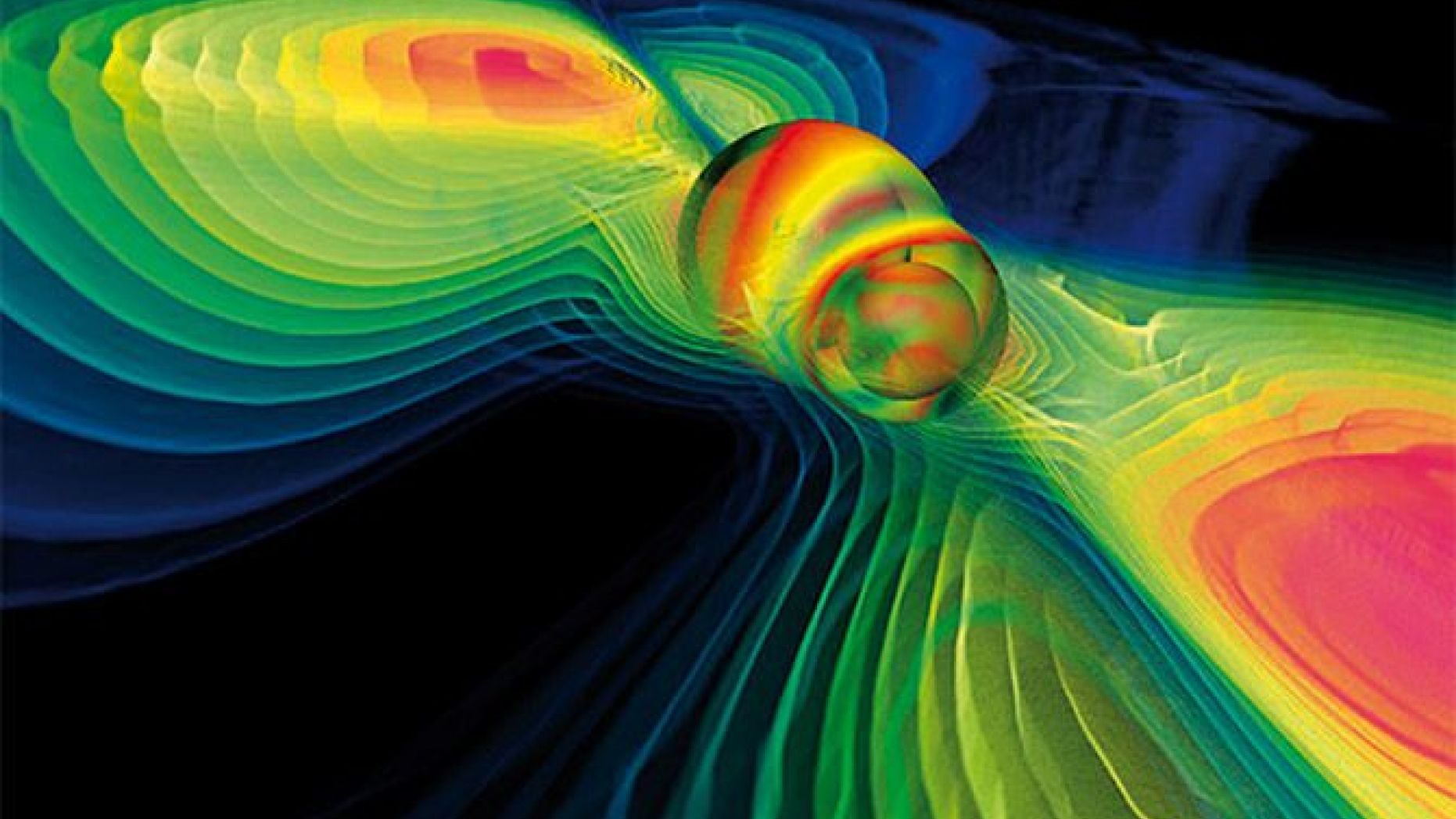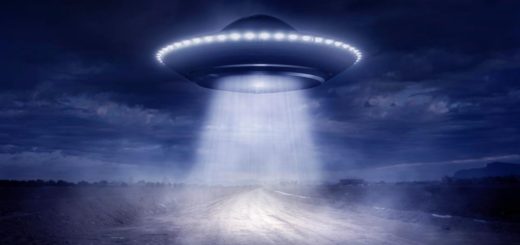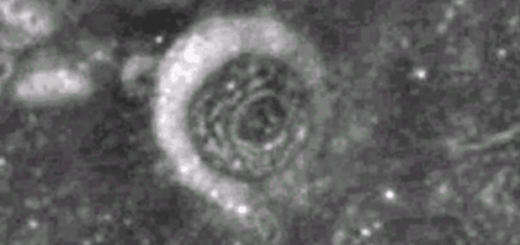Mysterious burst of gravitational waves hit Earth, baffling astronomers

A mysterious deep space event could have stretched and squeezed Earth last week.
Astronomers observed a split-second burst of gravitational waves on Jan. 14, but they can’t figure out precisely where the burst came from.
These waves are disturbances in space-time that are generally caused by accelerated masses, such as black holes or neutron stars, colliding with each other.
However, astronomers are unsure because this particular burst didn’t last very long. In addition, gravitational waves usually change in frequency over time, Andy Howell, a scientist at Los Cumbres Observatory Global Telescope Network, told Live Science.
WILL TITANIC’S SUNKEN WRECK BE PROTECTED? TREASURE HUNTERS ARE NOT SURE
A computer simulation showing gravitational waves during a black-hole collision. The discovery has major implications for science.
A computer simulation showing gravitational waves during a black-hole collision. The discovery has major implications for science. (MPI for Gravitational Physics/W.Benger-Zib)
GET THE FOX NEWS APP
The burst still “seems a little too short for what we expect from the collapse of a massive star,” he said. “On the other hand, we’ve never seen a star blowing up in gravitational waves before, so we don’t really know what it would look like.”
The scientist, who is also an adjunct faculty member in physics at the University of California Santa Barbara, suggested that the burst could be from two intermediate-mass black holes having merged.
Researchers are now pointing their telescopes to that same region to pinpoint the wave’s source.
“The universe always surprises us,” Howell added. “There could be totally new astronomical events out there that produce gravitational waves that we haven’t really thought about.”



 Creators of mankind
Creators of mankind Description of “Tall white aliens”
Description of “Tall white aliens” Where they came from?
Where they came from? About hostile civilizations
About hostile civilizations The war for the Earth
The war for the Earth “Tall white aliens” about eternal life
“Tall white aliens” about eternal life Video: “Nordic aliens”
Video: “Nordic aliens” Aliens
Aliens Alien encounters
Alien encounters The aliens base
The aliens base UFO
UFO Technology UFO
Technology UFO Underground civilization
Underground civilization Ancient alien artifacts
Ancient alien artifacts Military and UFO
Military and UFO Mysteries and hypotheses
Mysteries and hypotheses Scientific facts
Scientific facts


















